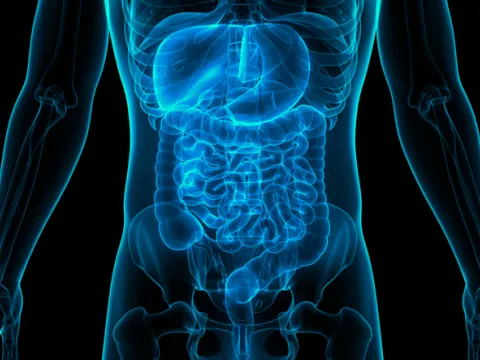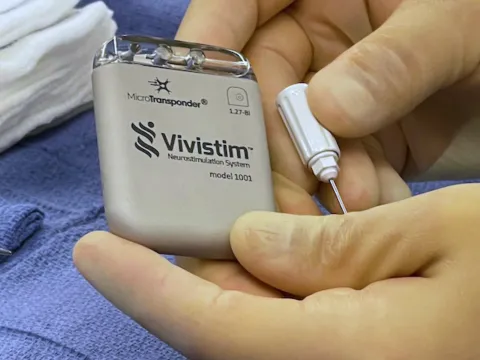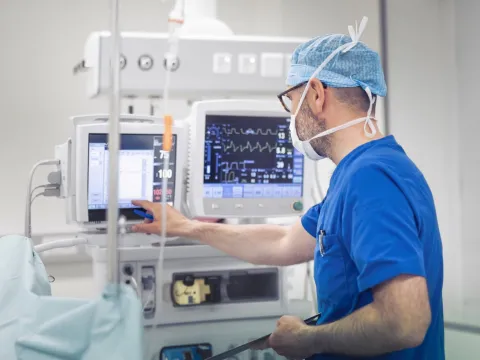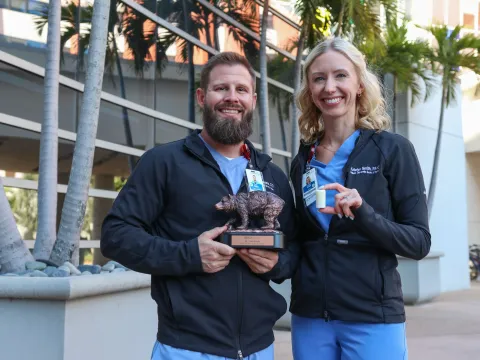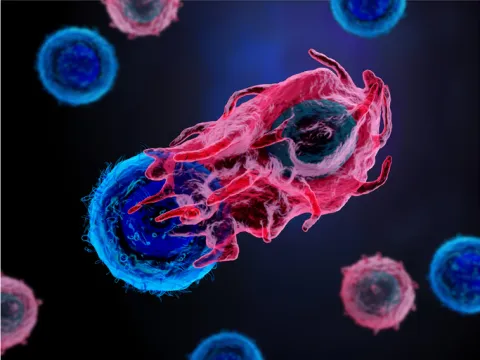- AdventHealth
Nurses comprise the nation's largest group of healthcare providers, with more than 3.8 million registered nurses (RNs) nationwide and 84.5% employed in acute care nursing.
While shift work is essential to delivering acute care, numerous studies have linked it with adverse cardio-metabolic effects, including increased risk for obesity, type 2 diabetes and cardiovascular disease, as well as increased risks for mental health concerns such as depressive symptoms, anxiety and suicidal ideation.
The AdventHealth Research Institute recently launched two new clinical studies to better understand and address the needs of healthcare employees who work night shifts:
- Well Nurse: Impact of Exercise Intervention on Well-being in Shift-working Acute Care Nurses
- COMET: ImpaCt Of Shiftwork on METabolic Flexibility and Skeletal Muscle Clocks
Can exercise improve the physical and mental health impacts of nursing shift work?
Physically active people have lower cardio-metabolic risk, and exercise training can be used as therapy for mental and physical conditions. However, scant research has focused on the impact of exercise training and lifestyle behavior on RN mental health or whole person wellness. Despite well-documented health benefits of physical activity, the 2019-2020 HealthyNurse® Survey reported 19%-45% of RNs did not meet muscle strengthening, vigorous aerobic activity or light to moderate aerobic activity recommendations, respectively, and only 37% reported access to employer-based exercise facilities and programs.
Launched in spring 2023 under the leadership of AdventHealth Biobehavioral Research Scientist Andrea Brennan, PhD, in the Nursing, Whole Person and Academic Research department, the Well Nurse study is a randomized, wait-list control pilot study to analyze the impact of an on-site, 12-week exercise training intervention on post-traumatic growth and whole-person well-being (mental health, physical health, spiritual well-being, perceived social support and occupational health) among shift-working acute care nurses within AdventHealth. The study includes five phases:
- Phase I: Screening — This encompasses obtaining consent, screening for inclusion/exclusion criteria, reviewing study details, assessing the need for medical clearance to participate in the exercise intervention and a single blood draw for fasted blood profiles.
- Phase II: Baseline Assessments — Upon successful screening, all participants will complete baseline assessments of both mental and physical health outcomes. This includes blood tests, EKG, cardiometabolic risk, anthropometry, body composition test (DEXA scan), exercise capacity testing (VO2 max), wearable activity monitors and musculoskeletal strength testing as well as several questionnaires to evaluate mental and spiritual health (i.e., post-traumatic growth inventory, generalized anxiety disorder scale and job satisfaction).
- Phase III: Exercise Training — Participants will be randomized to the exercise training intervention group or the wait-list control group for a 12-week period. All exercise sessions are held at the TRI.
- Phase IV: Post-Intervention — All participants will enter a post-intervention phase that includes repeat assessments of Phase II outcomes.
- Phase V: Repeat Assessments — A subset of psychometric questionnaires will be repeated 3- and 6-months post-exercise training intervention to ascertain sustainability of the intervention.
“This study is unique in that it delivers supervised, prescriptive exercise training from credentialed professionals to shift-working nurses for 12 weeks and measures a range of wholistic health outcomes that cover the mental and physical health spectrum,” shares Dr. Brennan.
AdventHealth LPNs, RNs, and APRNs who are employed in night shift work and currently do not exercise more than one day a week are invited to participate. Night shift work is defined as working at least 8 night shifts per month for the last 12 consecutive months. A night shift is defined as at least 6 consecutive work hours between 10 pm and 8 am. Compensation is provided for completion of all study visits. In addition, those randomized to the wait-list control group are offered the opportunity to complete the exercise intervention following their 12-week control period.
Understanding the impact of shift work on healthcare employees’ metabolic function
The links between shift work and metabolic disease are not fully understood, but researchers postulate they may be related to disruption of circadian rhythms. Launched in summer 2023 and continuing through 2024, the COMET study is led by AdventHealth Translational Research Institute (TRI) Faculty Investigator Melissa Erickson, PhD, and aims to determine the impact of shift work on metabolic flexibility, which is the ability of the body to respond or adapt to changes in metabolic demand.
For the COMET study, TRI researchers will assess rates of metabolic fuel use during simulated shift work schedules via whole-room indirect calorimetry protocols that include controlled meals, sleep and exercise. They will also take blood draws frequently to assess changes in circulating hormones and sample muscle tissue during both the evening and morning to estimate skeletal muscle circadian timing.
“Using our state-of-the-art research facilities, COMET was designed to help us understand how metabolism functions during a night shift,” explains Dr. Erickson. “This new information will help us gain a better understanding of why shift work increases risk for obesity and type 2 diabetes, which is critical for developing future health and wellness programs specific to the needs of shift workers.”
Improving the lives of nurses and other healthcare workers
The AdventHealth Research Institute believes both the Well Nurse and COMET studies are critical to better understanding and addressing the needs of nurses and other healthcare employees who work night shifts.
“The physical and mental health consequences of shift work are troubling, particularly for essential workers such as nurses in which increased workloads and associated burnout exacerbate concerns for overall wellbeing,” explains Dr. Brennan. “Nurses’ health and wellbeing are integral to the provision of safe, quality patient care, positive patient-health care provider relationships, high-functioning healthcare teams, and an engaged and effective workforce. It is imperative that we identify strategies that optimize health and wellbeing to not only retain nurses, but also provide an environment in which they flourish.”
AdventHealth administration concurs on the importance of investing in these research efforts.
“Nurse well-being is a top priority for our healthcare system,” says Cathy Stankiewicz, Senior Vice President and Chief Nursing Officer for AdventHealth’s Central Florida South Region. “These studies aim to provide our healthcare professionals with comprehensive knowledge to recognize physical and mental health concerns, and the skills to practice preventive self-care.”
For more information about participating in the Well Nurse study, contact amy.west@adventhealth.com. Click here to learn more about enrollment in the COMET study.
Recent News
The AdventHealth Neuroscience Institute is the first in Florida and one of the first in the country to begin recruiting patients with primary progressive or non-active secondary progressive multiple...
Accurately determining food intake remains a challenge in nutrition research. A new study published in Nature Metabolism and co-authored by Dr. Corbin introduces a metagenomics-powered approach to...
Discover what’s being accomplished in Central Florida to bridge the health gap with Orange County Mayor Jerry Demings and AdventHealth’s Dr. Alric Simmonds.
Breakthrough device offers new hope for stroke survivors struggling with rehabilitation following ischemic stroke
Jennifer Seminerio, MD, recently became one of the first in Florida to use intestinal ultrasound (IUS) to help assess and manage treatment of patients with inflammatory bowel disease (IBD). A non...
The Convergent Hybrid Ablation procedure has been gaining acceptance as an effective treatment option for long-standing persistent atrial fibrillation (AFib) since the CONVERGE trial data published in...
Recently, AdventHealth for Children pediatric orthopedic surgeon Sean Keyes, DO, Katelyn Smith, PA-C, and their team performed their 100th bridge-enhanced anterior cruciate ligament (ACL) repair (BEAR...
Physician leaders from AdventHealth’s emergency department, infectious disease, inpatient, pediatrics and pharmacy teams all collaborated to develop a respiratory virus testing algorithm to assist...
Thoracic surgeon Colleen Gaughan, MD, and her team at AdventHealth Celebration, recently became one of the first in the country to incorporate targeted imaging agent Cytalux (pafolacianine) as part of...
On the newest Inspiring Wholeness podcast, Obie Diaz, local morning radio show host, shares how a routine physical eventually led to two open heart surgeries.
AdventHealth recently began piloting a new Genomics Risk Assessment for Cancer and Early Detection (GRACE) program that combines the use of digital mammography, artificial intelligence (AI) technology...
AdventHealth Clinical Research Unit (CRU) Executive Director and Medical Director of Genitourinary Oncology Guru Sonpavde, MD, co-authored an article on the AMBASSADOR Phase III clinical trial results...


